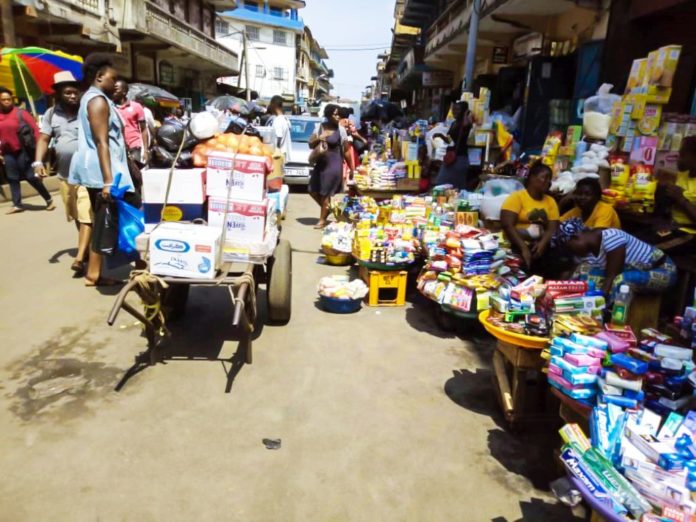By Amin Kef Sesay
Spirited efforts have been made this week by the Government to get street traders off main areas in the municipality such as PZ, Abacha Street, Lumley, Wilberforce, Jui, etc.,in a bid to decongest those areas.
The question however many people have asked is whether the Government has the right to evict street traders without providing alternative livelihoods for them?
The eviction of street traders as a Government policy dates back to the days of Alfred Akibo-Betts as Mayor of the Freetown City Council.
Street trading in Freetown has mushroomed beyond control, since the end of the war in 2002, with grave consequences for road safety, public health and sanitation, street crime and environmental blight.
Hundreds of thousands of unemployed people in Freetown are eking out a meagre existence out of illegal street trading. Few are paying local council tax, let alone declaring their incomes for personal taxation purposes.
Even though the main reason for street trading is to earn a living, it has gotten out of hands especially in the Central Business District.
Apart from interrupting human and vehicular traffic, street trading also leaves the streets of Freetown littered with plastic bags, wrappers and other forms of wastes. This makes our streets very dirty, untidy and unsightly.
To control this chaos, it should be the place of the Freetown City Council (FCC) and other municipal councils to put measures in place and embark on operations to eradicate street trading and peddling especially from the Central Business District.
The measures can include payment of taxes for goods and also the acquisition of tickets by street traders to legitimize their trade.
When interviewed, many street traders expressed disappointment over the non- availability of a market for them to do business and pleaded for the Government to build conducive market places for them so they can avoid selling on the streets.
Many people see the creation of more markets as a solution to street trading. It is assumed that more markets will give street traders a conducive and appropriate environment to do their businesses .
However, in Freetown and the other cities, curbing street trading will take much more than creating new markets and persuading street traders and hawkers to sell their goods there because the business of street trading is much more an issue of survival as it is cultural.




